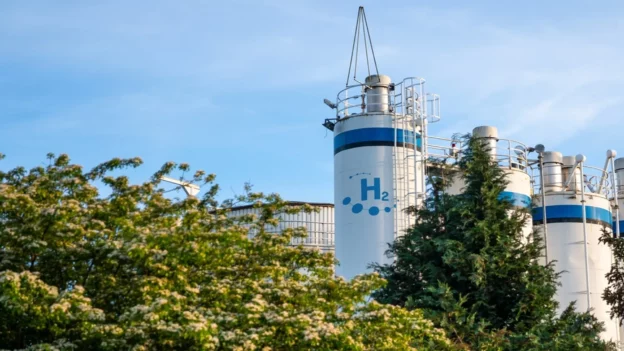In the United States, the Environmental Protection Agency (EPA) seeks to reduce emissions from power plants , excluding regulations on hydrogen co-combustion in the newly issued regulations. This change represents a significant revision compared to previous expectations.
Hydrogen costs exceed initial expectations
The projected cost of hydrogen has exceeded initial estimates. The EPA had previously estimated that hydrogen would be available at an affordable cost of $0.50 per kilogram by 2032 , however, new projections raise the cost to $1.15 per kilogram. This increase is due in part to the subsidies established by the Inflation Reduction Law, but even so, prices are considered too high by the energy sector, which is willing to pay between $0.40 and $0.50 per kilogram, according to a Department of Energy (DOE) report from the previous year.
The agency has also expressed doubts about the future availability of low-carbon hydrogen, arguing that it may not be enough to meet proposed standards.
Although the EPA has left the door open for plants to opt for hydrogen co-firing later, the immediate impact on the hydrogen industry will be much less than the 320,000 tons per year of demand that the EPA had initially anticipated.
EPA Postpones Carbon Standard for Co-Combustion Hydrogen
A previous EPA proposal to set a carbon intensity standard for hydrogen used in co-combustion was also scrapped. The agency opted to wait for Treasury’s final definitions on the emissions limits that will determine what hydrogen can be considered clean. It has been established that any hydrogen, regardless of its production method, must comply with the EPA’s uniform fuel standards.
In the end, the current limited supply of hydrogen is unlikely to be diverted to power plants, as they would compete with other sectors for this resource. Locating future clean hydrogen users close to production points will also limit power plants’ chances of being viable customers. The EPA believes the priority should be to use more efficient units rather than relying on hydrogen in boilers or gas-fired steam generating units.
Advances in power plants promise renewable future
Meanwhile, hydrogen technology continues to advance, and Combustion turbines are being developed that can operate efficiently on hydrogen. These advances could allow for a future reconsideration of its use in power generation, depending on how the availability and price of hydrogen evolves in the coming years.
Follow us on social networks and don’t miss any of our publications!
Inspenet.com YouTube LinkedIn Facebook Instagram X
Source: argusmedia.com
Photo: Shutterstock

